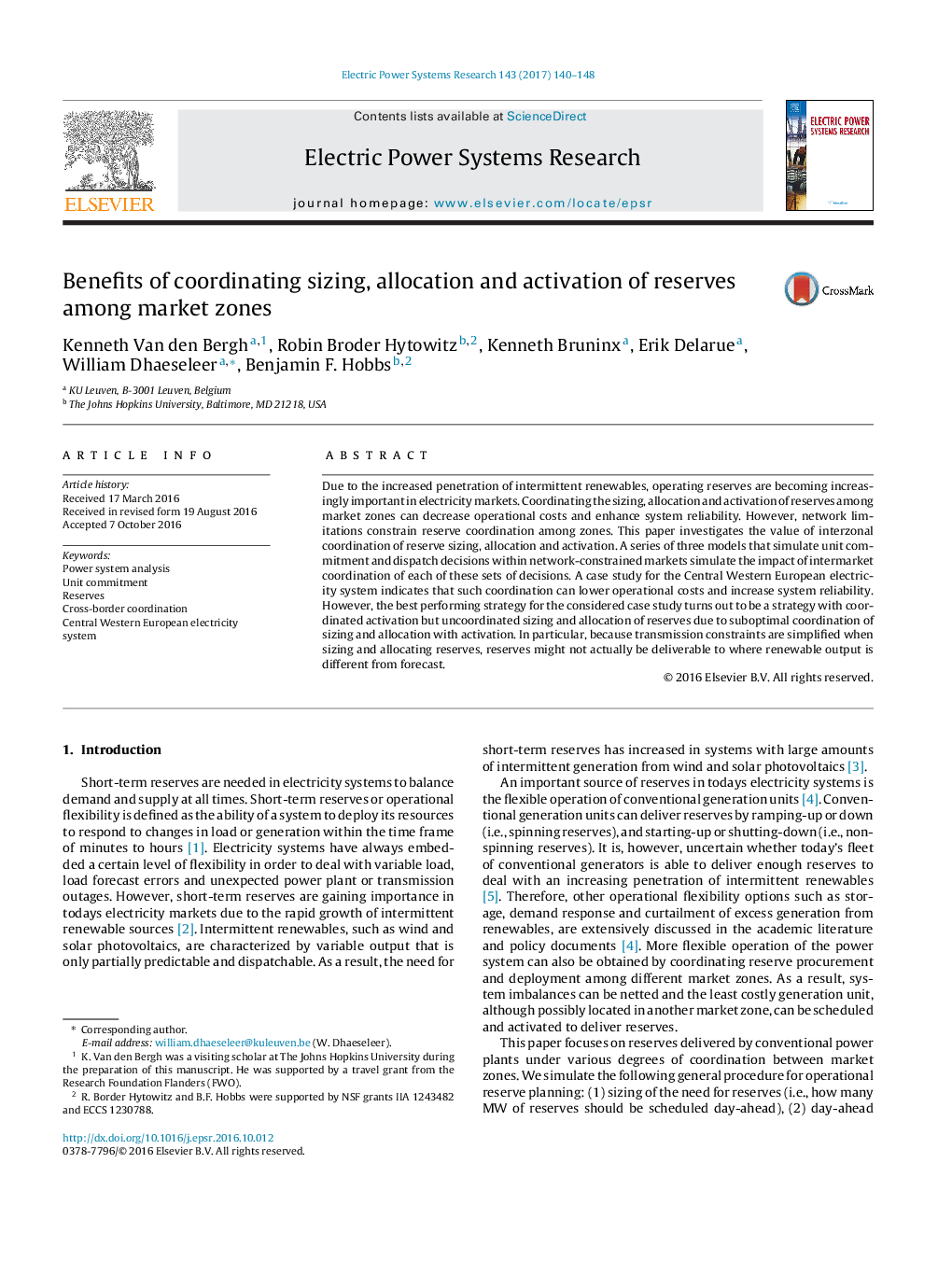| Article ID | Journal | Published Year | Pages | File Type |
|---|---|---|---|---|
| 5001218 | Electric Power Systems Research | 2017 | 9 Pages |
Abstract
Due to the increased penetration of intermittent renewables, operating reserves are becoming increasingly important in electricity markets. Coordinating the sizing, allocation and activation of reserves among market zones can decrease operational costs and enhance system reliability. However, network limitations constrain reserve coordination among zones. This paper investigates the value of interzonal coordination of reserve sizing, allocation and activation. A series of three models that simulate unit commitment and dispatch decisions within network-constrained markets simulate the impact of intermarket coordination of each of these sets of decisions. A case study for the Central Western European electricity system indicates that such coordination can lower operational costs and increase system reliability. However, the best performing strategy for the considered case study turns out to be a strategy with coordinated activation but uncoordinated sizing and allocation of reserves due to suboptimal coordination of sizing and allocation with activation. In particular, because transmission constraints are simplified when sizing and allocating reserves, reserves might not actually be deliverable to where renewable output is different from forecast.
Related Topics
Physical Sciences and Engineering
Energy
Energy Engineering and Power Technology
Authors
Kenneth Van den Bergh, Robin Broder Hytowitz, Kenneth Bruninx, Erik Delarue, William Dhaeseleer, Benjamin F. Hobbs,
